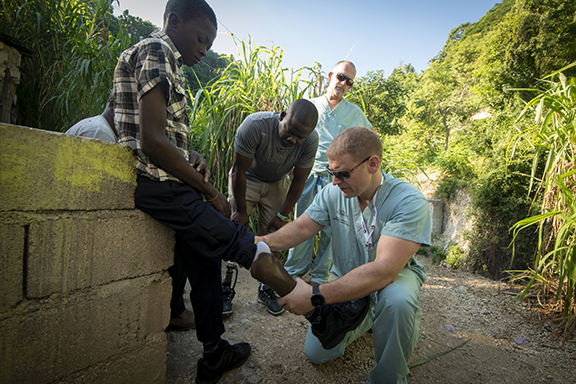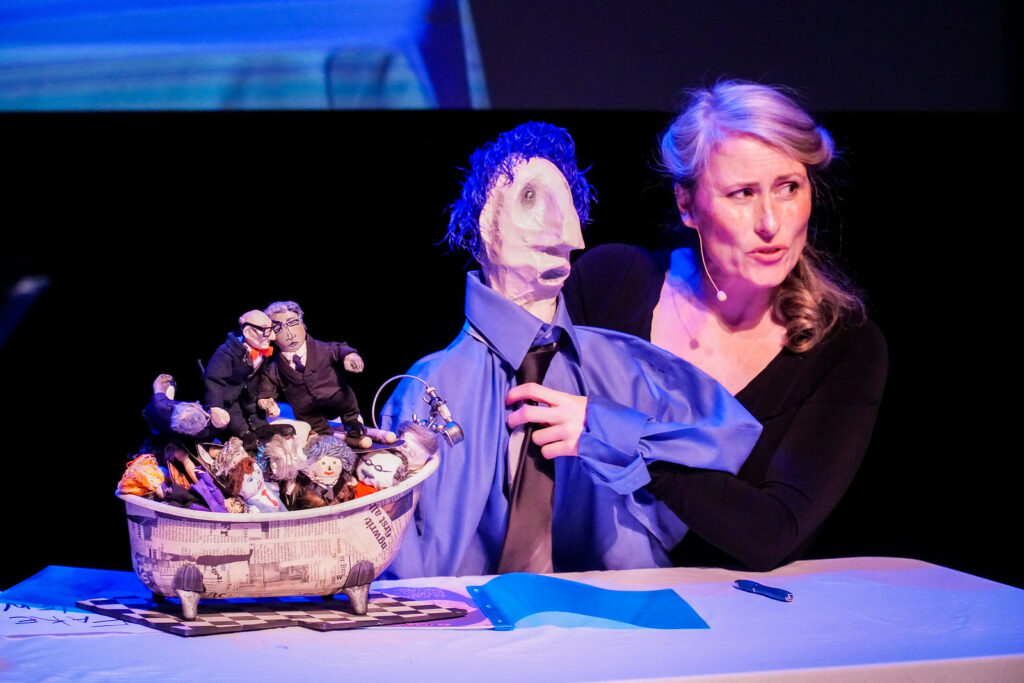Ink, splash & colour: Elizabeth Whitten publishes first book exploring NL comics
October 2023
Can you tell us a little about yourself? It’s interesting that you went from anthropology to journalism.
I’m a journalist based in St John’s, and I’ve been in this field for about eight years now. I started as an assistant editor for a local magazine and then switched to daily news as a business reporter, followed by two years as a freelancer (which is when I wrote Off Panel) and in June I started with the CBC. It’s a career I really enjoy, mostly because it feeds my curiosity. I get to talk to people about any number of subjects and get to go to interesting places.
I didn’t initially set my sights on journalism. I wanted to be an academic, so I have a masters in anthropology from Memorial University and was even accepted into a really competitive PhD program in the UK. But I was really wiped out after finishing grad school and I wasn’t sure I wanted to teach. Plus, I would have to be saddled with a lot of loans. Then I thought about what I liked about anthropology and my other interests: I loved reading and research. So journalism made sense. Over the course of a year I started writing a bit on the side and applied to the one-year bachelor of journalism program at the University of King’s College in Halifax, Nova Scotia, and graduated in 2015. And here we are today!
What about this project, how did this come about? What drew you to the subject? Is this topic a first for NL publishing?
Off Panel: A NL History of Comix is my debut book and traces the history of comic books and comic strips in Newfoundland and Labrador. I interviewed more than 30 people, chronicling their stories on how they go into comics, what’s the medium’s appeal, the challenges, and what type of stories they like to tell. Some people only published one comic before moving on. Others, like David Cutler, can now count Marvel as a client! Most of the people are in the province, but some have moved away, like Ricky King in British Columbia and Joseph Hewitt in South Korea. We have a lot of indie (or independent) comic book artists too, so people making their own stories.
While I worked on the book throughout 2022 and 2023, my interest in local comics actually goes back a few years to when I was freelancing a lot. That’s when I ended up writing a number of articles about the local comic book scene. That included The Overcast, Newfoundland Quarterly, and the CBC. So I had an interest in this subject and knew a few people making comics. Then I wrote a CBC article about the history of NL comics, interviewing Wallace Ryan, Paul Tucker, and Kelly Bastow for their perspectives. From research, I found there were a lot of people to talk to. And when the article was published I saw there was a really great response to it. So I wrote a book pitch and sent it to Engen Books, who became my publisher.
I think NL comics are really fascinating because there really is no unifying theme running throughout them. Each one is its own thing. While at the same time, comic books haven’t been given the same space or attention in accounts of our province’s art history. So I hope Off Panel contributes to that. There are plenty of interviews with comic book artists but as far as I know, Off Panel is the first book to attempt to tell this story.

What about your research into Dr Cluny Macpherson? How did you come across him and what captivated you about his story?
As a kid, I remember hearing at some point that a Newfoundlander had created the gas mask in the First World War and he had a house in downtown St John’s, but that was basically it. One day I even saw the plaque on the gate of his former home. But I never heard of exactly how a doctor from this province made such an enormous contribution to the war effort.
Then, I finished reading this fantastic book by medical historian Lindsey Fitzharris called The Butchering Art, which is about the life of Dr Joseph Lister and how, along with the advancement of germ theory, he came to develop antiseptic techniques in the 19th century, revolutionizing the world of surgery. It was a really inspiring book, in that it made me want to write a book! And I thought, what figure could I write about? And Dr. Cluny Macpherson popped into my head. After some research I found there was basically nothing written about him, and certainly no books. So I started reading his digitized notebooks, made appointments to see the physical notebooks held at the Faculty of Medicine’s Founders’ Archive, contacted his family, and read other books about chemical weapons. I’ve even been to Ottawa and London, UK, to visit archives.
It’s a really captivating story in part because it’s so unlikely that a doctor from a dominion like Newfoundland would find a way into the gas mask development project, and then end up contributing to it in such a significant way.
The biography is also a very different type of story when compared to Off Panel. And really, the biography was supposed to be my debut book but I ended up working on Off Panel because it was a bit more straightforward to put together.
What’s next for you?
Well, Off Panel officially launches on October 28 at Timemasters (70 Hamlyn Road) from 2pm-4:30), so now I’m focused on promoting it. Writing a book is a bit like a marathon, where writing it and getting it published just gets you to the start of the race. Now I have to reach those readers. There are also a few conventions I’ll pop up at in order to spread the book too! But after that settles down, I will get back to working on the Macpherson biography. It’s the book I started working on before Off Panel (by several years) so I really should really conclude it. I’m also a journalist, so that’s also going to keep me busy!



